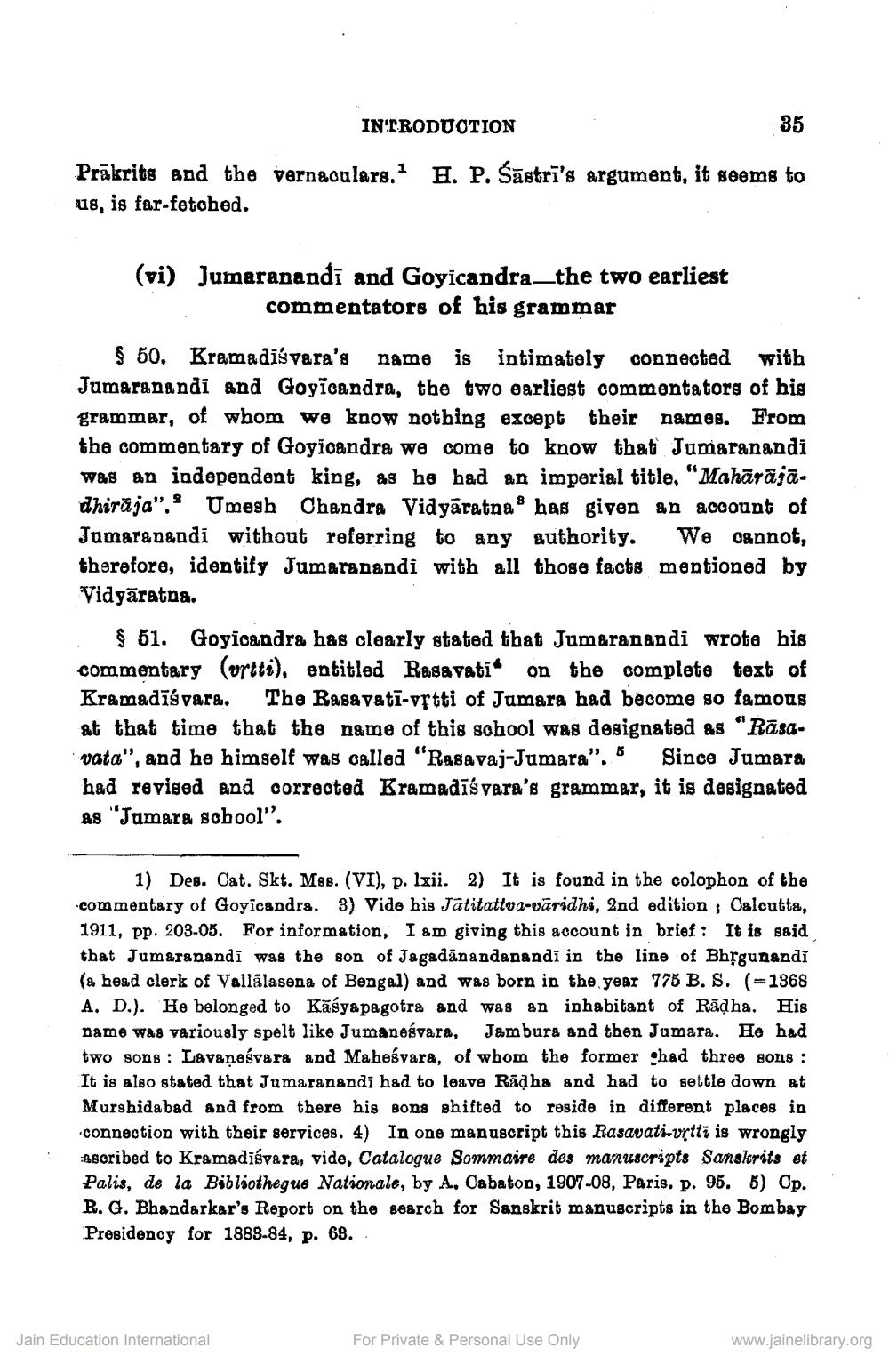________________
INTRODUOTION
35
Prakrits and the vernaculars. us, is far-fetched.
E. P. Šāstri's argument, it seems to
(vi) Jumaranandi and Goyicandra_the two earliest
commentators of his grammar
$ 50. Kramadīśvara's name is intimately connected with Jumaradandi and Goyīcandra, the two earliest commentators of his grammar, of whom we know nothing except their names. From the commentary of Goyicandra we come to know that Jumaranandi was an independent king, as he had an imperial title, "Mahārājādhiräja". | Umesh Chandra Vidyaratna' has given an account of Jamaranandi without referring to any authority. We cannot, therefore, identify Jumaranandi with all those facts mentioned by Vidyāratna.
§ 61. Gogicandra has clearly stated that Jumaranandi wrote his commentary (ortti), entitled Rasavatio on the complete text of Kramadīśvara. The Rasavati-vrtti of Jumara had become so famous at that time that the name of this school was designated as "Rāsavata", and he himself was called "Ragavaj-Jumara". Since Jumara had ravised and corrected Kramadīśvara's grammar, it is designated as "Jumara school".
1) Des. Cat. Skt. M88. (VI), p. lxii. 2) It is found in the colophon of the commentary of Goyicandra. 3) Vide his Jatitattu a-varadhi, 2nd edition, Calcutta, 1911, pp. 203-05. For information, I am giving this account in brief: It is said that Jumaranandi was the son of Jagadānandanandi in the line of Bhřgunandi (a head clerk of Vallālasena of Bengal) and was born in the year 775 B. S. (= 1368 A. D.). He belonged to Kāśyapagotra and was an inhabitant of Radha. His name was variously spelt like Jumanesvara, Jambura and then Jumara. He had two sons : Lavanośvara and Maheśvara, of whom the former had three sons : It is also stated that Jumaranandi had to leave Rāąha and had to settle down at Murshidabad and from there his bons shifted to reside in different places in connection with their services. 4) In one manuscript this Rasavati-vrtti is wrongly Ascribed to Kramadīśvara, vide, Catalogue Sommaire des manuscripts Sanskrits et Palis, de la Bibliothegue Nationale, by A. Cabaton, 1907-08, Paris. p. 95.5) Op. R. G. Bhandarkar's Report on the search for Sanskrit manuscripts in the Bombay Presidency for 1888-84, p. 68.
Jain Education International
For Private & Personal Use Only
www.jainelibrary.org




